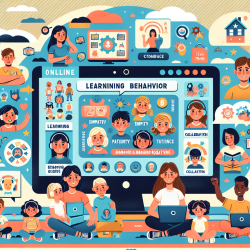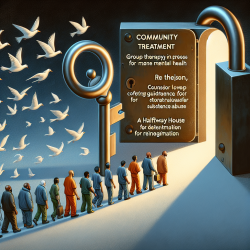In the realm of special education and therapy services, practitioners often face challenges similar to those encountered by police officers when dealing with individuals with mental health issues. The research article titled "A Novel Training Program for Police Officers that Improves Interactions with Mentally Ill Individuals and is Cost-Effective" offers valuable insights that can be adapted to enhance the skills of therapists and educators working in schools.
The Importance of Empathy and Communication
The study highlights the significance of empathy, communication skills, and de-escalation techniques in improving interactions with mentally ill individuals. These skills are equally crucial for therapists and educators who work with students facing various challenges. By adopting a similar approach to training, practitioners can enhance their ability to connect with students and address their needs effectively.
Role-Play Scenarios: A Powerful Training Tool
The training program described in the research involved police officers engaging in role-play scenarios with trained actors. This method allowed officers to practice real-life situations in a controlled environment, receiving feedback from both actors and mental health professionals. For therapists and educators, incorporating role-play into professional development can provide a safe space to practice responses to challenging behaviors and refine their approach.
Feedback: A Catalyst for Improvement
A unique aspect of the training was the feedback provided by actors on how the officers' actions made them feel. This immediate feedback loop is essential for practitioners as well. By receiving constructive criticism from peers or mentors, therapists and educators can gain insights into their interactions with students and make necessary adjustments to improve outcomes.
Cost-Effectiveness: A Win-Win Approach
The research demonstrated that the training program was not only effective in changing behaviors but also cost-efficient. With a cost of $120 per officer, the program led to significant savings by reducing time spent on calls and decreasing the use of force. Similarly, investing in targeted training for school staff can lead to long-term benefits by reducing incidents that require intervention and improving overall school climate.
Encouraging Further Research
The success of this training program underscores the need for continued research into effective professional development strategies. Practitioners are encouraged to explore additional studies and pilot new approaches within their schools or districts. By staying informed about innovative practices, therapists and educators can continuously improve their skills and better serve their students.
A Call to Action
The findings from this research offer a blueprint for enhancing practitioner skills through innovative training methods. By adopting similar strategies, therapists and educators can improve their interactions with students, leading to more positive outcomes and a supportive learning environment.
To read the original research paper, please follow this link: A Novel Training Program for Police Officers that Improves Interactions with Mentally Ill Individuals and is Cost-Effective.










